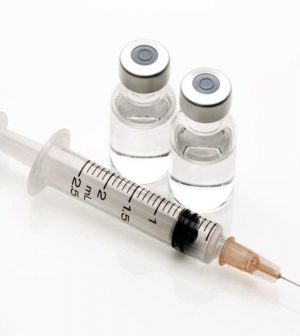- 10 Strategies to Overcome Insomnia
- Could Artificial Sweeteners Be Aging the Brain Faster?
- Techniques for Soothing Your Nervous System
- Does the Water in Your House Smell Funny? Here’s Why
- Can a Daily Dose of Apple Cider Vinegar Actually Aid Weight Loss?
- 6 Health Beverages That Can Actually Spike Your Blood Sugar
- Treatment Options for Social Anxiety Disorder
- Understanding the Connection Between Anxiety and Depression
- How Daily Prunes Can Influence Cholesterol and Inflammation
- When to Take B12 for Better Absorption and Energy
Boosters: What You Need to Know

People will probably need regular booster shots for COVID-19 over the next few years to keep their immune systems on guard against a potentially deadly infection, an infectious disease expert says.
COVID mutations and high transmission rates in some parts of the country mean that even the vaccinated remain at risk for a breakthrough infection, said Dr. Jonathan Abraham, assistant professor of microbiology at Harvard Medical School’s Blavatnik Institute and an infectious disease specialist at Brigham and Women’s Hospital in Boston.
“Vaccines remain extremely effective at preventing severe infection and death, but they are not 100% effective at stopping acquisition and transmission of the virus,” Abraham said in a Harvard news release. “With this in mind, I would speculate that because of highly transmissible variants, we will need periodic boosters for the next few years.”
It’s also likely people will need an updated COVID vaccine in that time frame, because the original strain “has virtually gone extinct” due to competition from more infectious variants like Delta, Abraham said.
“There is the chance that, over time, the SARS-CoV-2 spike protein will shape-shift or mutate enough that a booster with an updated strain antigen would be required to prime the immune system to recognize the mutant virus,” he said. “This scenario would be more like what is done with the seasonal influenza virus vaccines every year.”
Booster shots are intended to give the immune system a nudge when antibody levels start to decline from the original vaccination, Abraham said.
“A booster tricks the immune system into thinking that it is again seeing a pathogen, so antibody-producing cells, and other immune cells, are recalled into gear,” he said. “The quantity and quality of antibodies that are produced can increase.”
Boosters also help the immune system learn to do a better job recognizing a germ and creating antibodies that more precisely target it, Abraham said.
This waning immunity is why we need boosters for some vaccines — like the tetanus/diphtheria/pertussis (Tdap) jab — but not for others.
“For some pathogens, having preexisting and primed immune responses — for example, in the form of measurable antibody levels — is critical for efficacy. So, as antibody levels naturally wane over time, a booster is required,” Abraham said.
“For other pathogens, like hepatitis B virus, completing the immunization three-shot series is likely to provide lifelong protection, so measurable antibody levels are not routinely checked,” he said.
More information
The U.S. Centers for Disease Control and Prevention has more about COVID-19 vaccines and booster shots.
SOURCE: Harvard Medical School, news release, Nov. 23, 2021
Source: HealthDay
Copyright © 2026 HealthDay. All rights reserved.










